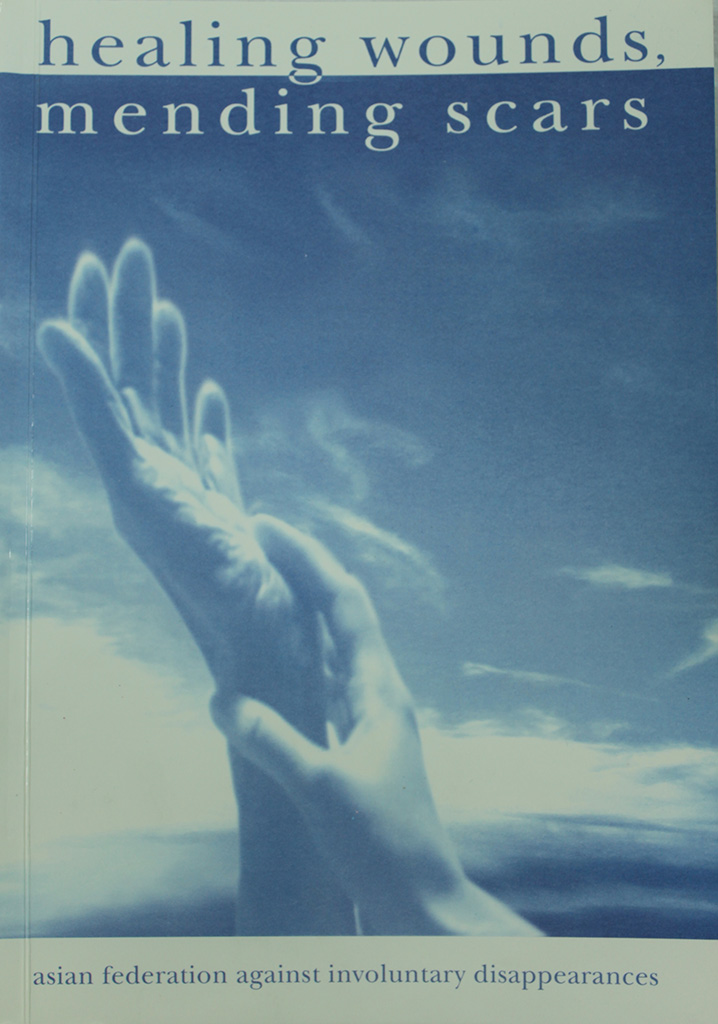I met them in Jakarta as two of the four Pakistanis attending the First Sharing of Experiences of Asian Families of Victims of Involuntary Disappearances. Despite its dark evocative title, Muneer Ahmed Khan and Ruksana Begum displayed neither any hint of sadness nor expression of mourning, exchanging small talk and animated conversation with fellow participants despite the ever-present language barrier.
I began to notice the slight indication of concern when I began my interview, with Muneer becoming animated at one point and Ruksana answering in her didactic monotone though weighing each and every word as if the very universe depended on it. They were both relatives of desaparecidos, and are now in human rights advocacy - helping fellow victims like themselves.
Muneer lost his then 29-year old cousin Ejaz Ahmed Khan three years ago when he disappeared while he was on his way to his village of Kaful Gairh in Pakistan. The abduction occurred at 4:00pm of 15 January 2002. He was riding a coaster from the capital city of Islamabad when he and the other passengers were ordered to halt by armed men in civilian clothes. Ejaz, along with four others were then taken into custody and were never heard from again.
Even to this day, Muneer wonders on the identity of the perpetrators and why his cousin was taken, repeatedly insisting that his cousin was just a poor laborer and was never involved in any partisan political activity.
Their entire family took part in the search, but to no avail. In desperation, they wrote a letter to the Red Cross and received a reply telling them Ejaz was probably detained in Cuba. How he got to Cuba, even I was baffled and found it initially implausible. But a few months later, a number of detainees from Cuba did indeed return and confirmed that Ejaz was with them in jail.
Muneer also did not hesitate to share that he was saddened by the fact that they have yet to receive any information about his cousin, including the reason for his abduction and his present whereabouts.
Ruksana, for her part, longs for her missing uncle Muhammad Arafat who was a political activist, though whose activities were clearly within the ambit of the legal process. At one time, his uncle left Pakistan to work, but the activist in him made him go back and resumed his political involvement.
One day, one of his friends called him from outside the house. He immediately left but he never returned since. All of their relatives practically joined in the search and reported the incident to the police. But the authorities made no proper investigation and rumors soon began to circulate that the police themselves were involved in his abduction. Ruksana claims that this further weakened her family’s trust and faith in the security forces and further deepened their cynical attitude towards the government.
But despite these adversities, they still clung to the hope that her uncle would return, convincing themselves that he would do so each passing day. This trauma, mingled with the conflicting emotions of hope and despair continued for a long time, with none of the family members receiving any formal rehabilitation. The situation was made even worse, for her uncle was the main breadwinner, which made his immediate family suffer economically.
On the other hand, both Muneer and Ruksana underscored the assistance of the Truth and Justice Commission (TJC) in the subsequent follow-up on these cases. Muneer for instance, admitted that the Commission organized a press conference which brought his cousin’s plight to the attention of the public. Ruksana, for her part, shared that it was TJC that is doing an honest-to-goodness investigation and documentation on her uncle’s case and has even provided them with legal assistance.
These positive developments notwithstanding, both of them condemned the government’s lack of assistance to the victims’ families. In Ruksana’s case, it was the religious groups were the ones who extended assistance to her family.
Muneer attributes this widespread practice of enforced disappearance in Pakistan to the problem of terrorism. Since, the people’s fundamental problems are not properly addressed, according to him, a growing section of the population are now seeking other means to effect societal change.
Apart from this, Pakistan has a number of draconian laws that effectively stifle dissent and curtail basic freedoms. One of which is the Maintenance of Public Order Ordinance which empowers the authorities to detain any person up to three months on grounds of “acting in any manner prejudicial to public safety or to the maintenance of public order.”1
But for Ruksana, she remains very optimistic. For despite the odds, she knows that there are people supporting their cause, even outside of Pakistan. As she very beautifully encapsulated it: “ The tragedy may be individual, but the pain that we feel is universal.”
She further asserted that in retrospect, it was impossible for her to stop her uncle’s disappearance. But she now has the necessary capacity to prevent future occurrences of this scourge and spare other Pakistanis of the pain that she underwent through.
Indeed, hope springs eternal.
Footnotes
1 Quoted from Victor Karunan’s The Security Syndrome: The Politics of National Security in Asia. Forum-Asia: Bangkok, 1997, p.46.

